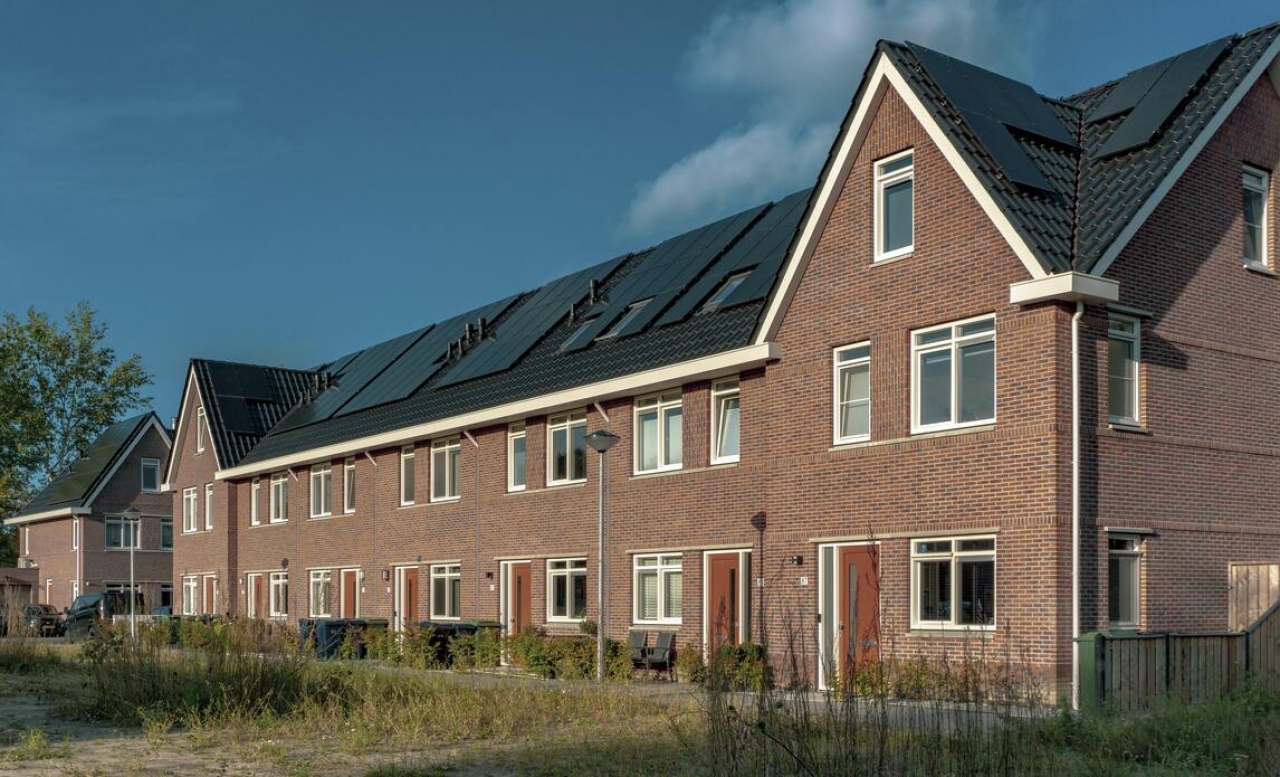With plans for new energy efficiency standards in the works, landlords should consider upgrading to meet the required EPC rating - and here's a list of the financial support available to help.
A recent poll highlighted that around a third of landlords are either only somewhat aware or entirely unaware of the upcoming changes. At Lifestyle, we will ensure we’re keeping our landlords informed of the future energy efficiency requirements, and advise them on where they can improve and the support that's available.
This is easier said than done as the Green Homes Grant, launched in September 2020 to help homeowners with energy efficiency upgrades, was deemed a failure, and the National Residential Landlords Association has put out a call for more support for landlords to upgrade their properties' energy efficiency.
However, there are some schemes, loans, and grants that landlords can take advantage of, to ensure they're ready for the new Minimum Energy Efficiency Standards when they come into force - including the recently opened Boiler Upgrade Scheme.
The schemes covered in this guide:
The Boiler Upgrade Scheme (England and Wales)
VAT relief on energy saving materials (England, Scotland and Wales)
A Green Deal loan (England, Scotland, and Wales)
Energy Company Obligation grants (England, Scotland, and Wales)
Empty Property Grants (Regional funding)
Smart Export Guarantee (England, Scotland, and Wales)
The Boiler Upgrade Scheme (England and Wales)
This scheme was announced back in October 2021 under the government's Heat and Buildings Strategy and will run until 2025.
It provides one grant per property to help cover the cost and installation of low carbon heating systems such as heat pumps, at:
£5,000 for an air source heat pump
£5,000 for a biomass boiler
£6,000 for a ground source heat pump
A property may be eligible if it has an installation capacity of up to 45kWth - which covers "most homes" - and a current EPC with no outstanding recommendations for loft or cavity wall insulation. To be eligible, private landlords will need to live in England or Wales and own the property.
VAT relief on energy saving materials (England, Scotland and Wales)
Until 31 March 2027, zero-rate VAT will apply to the installation of certain energy saving materials in residential properties. The supplier should charge landlords the reduced rate.
The zero-rate can also apply to "ancillary supplies" involved in the installation. For example, VAT on the installation of an air source heat pump together with new radiators and pipework will all be charged at zero, as the radiators are necessary to benefit from the heat pump.
A Green Deal loan (England, Scotland, and Wales)
Although the Green Deal Scheme was originally a government initiative, it switched to private backing in 2015.
This loan can be put towards a variety of improvements, such as insulation, heating, draught-proofing, double glazing, or renewable energy generation, such as solar panels or heat pumps.
Green Deal loans are repaid through electricity bill payments, according to Which.com. The repayments shouldn't exceed the savings you made on your energy bill, but that doesn't mean that your bills savings will match the loan repayments, as it doesn't take into account increases in energy prices. The loan is also linked to the property so it would pass to the new owner if a landlord were to sell up.
Energy Company Obligation grants (England, Scotland, and Wales)
If landlords have any qualifying tenants from low-income and vulnerable households, the tenant may be able to access an Energy Company Obligation (ECO) grant to support energy efficiency improvements.
This isn't a government grant, but an "obligation placed on the largest energy suppliers to support households".
If a landlord's property has an EPC rating of F or G, the grants must go towards upping that rating to band D or above, and the funding for private rented properties will support "the least efficient homes in bands E-G only".
UK Energy Support says that landlords can encourage eligible tenants to apply for the grant "thus improving your property energy efficiency for years to come by installing electric storage heaters or fulfilling insulation grants such as free cavity wall insulation or loft insulation grant."
The government has shared that the fourth edition of the ECO "will upgrade around 450,000 homes, most of them to EPC band C" over the next four years.
Empty Property Grants (Regional funding)
Local councils may also be able to help financially support landlords to make energy improvements to their properties. The empty homes grant in Kingston can help cover up to £25,000 for thermal upgrades to windows, boiler work and insulation, on properties that have been empty for at least six months.
There would be certain restrictions in place - such as not being able to sell the property within five years of receiving the grant and having to rent the property through the council's private leasing scheme for that five-year period - but for landlords in it for the long haul, looking into any similar local schemes could be an option.
Smart Export Guarantee (England, Scotland, and Wales)
For properties that already have renewable energy, the Smart Export Guarantee (SEG) pays customers for renewable electricity they've generated and put into the grid.
This could be solar, wind, hydro, micro combined heat and power, or anaerobic digestion. Some of these energy sources may also be covered by the zero-rate VAT mentioned above, if your landlords are considering upgrading to renewable energy.
Landlords will need to sign up to an SEG tariff with a big energy company, to ensure they're not simply giving away their energy to the National Grid for free. Which.com advises shopping around for the best tariff, and shares an outline of how much could be saved, when combined with the estimated money saved on their energy bill too:
We are indebted to our friends at Goodlord for the contents of this blog which was originally published on Goodlord's “Newsagent" on 13th June 2022,


Share this with
Email
Facebook
Messenger
Twitter
Pinterest
LinkedIn
Copy this link